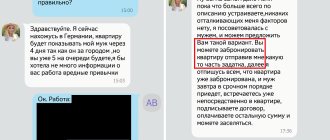Writing off funds from a salary card is always unexpected, unpleasant and causes a storm of indignation. But at this moment it is important not only not to panic, but also to act as quickly as possible to minimize the damage.
Can a salary card be seized? On what basis do the bailiffs write off funds from her? How to get your salary back, and are there ways to protect money from the actions of performers? Taxation and accounting expert Alla Semenova FAN journalist about this .
photo from the personal archive of Alla Semenova /
Can a salary card be seized?
Debt collection is carried out by the Federal Bailiff Service. Its employee opens enforcement proceedings and then imposes restrictions on the debtor’s accounts or property. The bailiff is obliged to notify the debtor of the fact of the opening of proceedings. They do this in writing by sending a notification by registered mail.
Having received such a letter, the debtor can pay off the debt voluntarily - the law allows five days for this. If the debt is not repaid, the bailiff initiates forced collection of funds.
It also happens that the debtor deliberately does not receive a letter from the FSSP, and it is returned to the sender. Despite the fact that the notification was not received, this does not limit the capabilities of the FSSP employee. It works in exactly the same way, but only with a slight delay: production is opened after the letter is returned, usually after 30 days.
Advice. It is worth receiving letters from the FSSP. First of all, in order to understand the origin of the debt and contact the bailiff in time to indicate accounts and funds that, according to the law, cannot be collected.
“The seizure of a salary card is possible for several reasons,” notes tax and accounting expert Alla Semenova. — This happens if there is a debt on loans, car fines or taxes have not been paid. Also, the reason may be court decisions taken not in your favor, debts for utilities and evasion of alimony payments.”
You can find out the reason for the retention using government portals. On the Gosuslugi website you can find out debts on taxes and car fines, but only if you have a verified account. You can clarify debts regarding alimony and other legal disputes on the website of the court where the case was heard. It will not be possible to find out the utility debt electronically, but you can contact the nearest MFC and check the amount there.
Regardless of the reason for the debt, the bailiff will collect it by all means available to him. And seizing and withdrawing money from a bank account is one of the fastest and most effective, which is why it is used most often by FSSP employees.
Federal News Agency /
No unlocking
What funds cannot be seized by bailiffs.
Having received a decision on forced collection, a person is given five days for voluntary compensation, excluding weekends. If a decision is not received, but the arrest is made, this is a violation of the job description of FSS employees. When this happens, the debtor needs to contact the regional office of the service.
Algorithm of actions:
- The citizen will be given an order to begin enforcement proceedings with a warning of criminal liability for failure to comply, but the existing block will be lifted.
- If within the next five banking days the arrears remain unreimbursed, the bailiffs have the right to seize the salary card again with a complete write-off.
- In addition to forced collection, a 7% tax, i.e., a fee for late payments, may be incurred.
Based on the above, the debtor has the right to appeal the actions of the bailiffs to a higher department of the service if the arrest occurred without warning.
Why doesn't the bank report restrictions?
According to the law, the bank is not obliged to do this; this is the task of the FSSP employee. However, the position of banking institutions is usually determined by their ethics towards customers. Some not only inform the client about the arrest of the account, but also provide information about the bailiff who imposed the arrest and the amount of the penalty. Others do not do this, and provide information only when the client calls or comes to the branch to find out where his salary disappeared from the card.
No bank will act contrary to a lawful court decision or hide client accounts from the FSSP, no matter how “valuable” it may be. The concept of “bank secrecy” does not work here. The law obliges banks to provide information about the accounts of debtor clients. And since the information is transferred to a government agency, there is no violation of bank secrecy. There is no point in blaming a financial institution for this.
Can bailiffs remove debt from a salary card?
They can, but there are several nuances here. The main thing is that according to the law, the bailiff does not have the right to withhold wages in full. There are limits set by the state on how much you can do this. As a rule, the maximum should not exceed half of the official monthly income. That is, if an employer credits 70 thousand rubles of wages to the card every month, then only 35 thousand can be withheld from this amount, but not all the funds.
Recovery rates may vary depending on the type of debt. If we are talking about alimony or compensation for health damage caused to another citizen, they may withhold a larger amount - in the amount of 70% of income. The same rule applies if the debtor has committed a crime and is obliged to compensate for the damage associated with it, as well as if the death of the family breadwinner has occurred through his fault: the injured family will have to compensate for the damage in the amount of 70% of the salary.
In some cases, the amount can be reduced to one quarter of your own income. The law allows compensation in the amount of 25% if the debtor has a difficult financial situation, is raising young children or has become disabled. Each of these circumstances must be documented. The bailiff must bring certificates: about disability, pensioner status or birth certificates of children. In this case, the amount of the penalty will be reduced. But until the documents are submitted, the state executive will act “on a general basis.”
pixabay.com/Gerd Altmann
Allowable amount of deduction
What proportion of your income can be written off by bailiffs.
Bailiffs cannot completely seize a debtor’s salary card if it is the citizen’s only source of income. The law allows you to withdraw no more than 50% of the money transferred to such an account. The entire amount may be withheld, but subsequent monthly collections will only equal half of the funds.
However, bailiffs have the right to assign 70% of deductions if the following circumstances arise:
- child support for several minor children;
- compensation payments for damage to health;
- actions resulting in disability or death of the main breadwinner;
- covering arrears resulting from theft.
But the executors cannot seize more than a quarter of the monthly income if the card belongs to a single parent. And also no more than 30% for a family with several minor children.
Why did the bailiffs withdraw all the money from the salary card?
“The peculiarity of collecting funds from the debtor’s accounts is that for the bailiffs they are all impersonal,” clarifies Alla Semenova. — The bank only provides information that certain accounts have been opened in the client’s name, but does not specify their purpose. The bailiff does not know whether the account is used to store funds or to receive wages, pensions, or child benefits. The debtor himself is obliged to report this.”
If he does not notify the bailiff about the purpose of the accounts, he has the right to seize them all and use all the funds on them to pay off the debt. This means that if the amount of collection is greater than what is stored on the salary card, every penny of money will be written off from it, and at the next deposit they will continue to be written off until the debt is repaid.
If the bailiff sends the documents not to the bank, but to the accounting department of the enterprise where the debtor works, the recovery percentage does not exceed that established by law. Exactly half or 70% of the income will be withheld from the salary, and only the remaining portion will be sent to the employee. This is one of the features of the salary card; you can find out more about them in a special FAN review.
Seizure and write-off - what is the difference between these measures
There is a difference between arrest and write-off, and it is significant. The seizure of property or funds in itself does not entail their seizure. This is a security measure that means blocking the movement of money, prohibiting their withdrawal or transfer. For example, when securing a claim in a lawsuit, the money will not be written off, but only a ban on its disposal will be imposed.
Typically, bailiffs begin a hold simultaneously with the imposition of an arrest. This is logical, since writing off money is the easiest way to comply with a court decision.
Therefore, in the resolution that goes to the bank, the bailiff will immediately indicate:
- information about the seizure of all accounts that are opened in the name of the defaulter;
- about the amount of debt for the repayment of which funds will be withheld;
- about the amount of deduction if money will be written off from certain types of income (salary, pension, benefits, etc.)
A copy of the resolution will be sent to the debtor. However, sending a document by mail can take several days or even weeks. Therefore, debtors often unexpectedly learn about write-offs from SMS and notifications in the online banking system. The later you find out about the lien, the more difficult it will be to get your money back.
What to do if the bailiffs seized your salary card
In this situation, it is important to understand why funds are being collected, and you need to act quickly.
Contact your bank
Ask the employee to explain the reason for debiting funds from the card. If this happens at the request of the FSSP, find out the details of the specialist who imposed the penalty.
Contact a FSSP specialist
You can find his data on the FSSP website, where there is information about all enforcement proceedings. Enter your first and last name and region of residence in the search. Information about the amount of debt and the bailiff who seized the card will appear in the results.
Call the bailiff, or better yet, go to him for an appointment. If this is not possible, prepare the application in writing and send it by mail. The application must be accompanied by documents confirming that a specific account or card is used by you as a salary account. To do this, you need to provide a certificate from your job with card details and confirmation that your salary is being transferred to it. You will also need a bank statement, which will indicate the same amounts of regular payments.
Having received these documents, the bailiff will remove the seizure from the account. Funds will not be written off from it in full, but only within the “limit” established by law.
pixabay.com/Chronomarchie
The employee received several enforcement documents
If a company receives several writs of execution for an employee, then a logical question arises for the accountant: how to properly make deductions. In this case, it is necessary to refer to Article 111 229-FZ, which establishes the order of repayment of claims. For individuals it will look like this:
- Alimony, compensation for harm to health and life, damage caused by a crime.
- Mandatory payments to the budget and extra-budgetary funds.
- Other requirements.
When enforcement documents are received for debt collection under the claims of one queue, they are executed in calendar order.
Try to keep it within five days
When a bank receives a request from a government enforcement agency, it acts quickly: funds can be debited from the card within a few hours. They are sent to a special deposit of a FSSP employee, where they remain for five days, after which they are sent to the claimant.
While the money is on the bailiff’s deposit, there is a possibility of returning it. After receiving the documents, the specialist has the right to return the part to the debtor if it is proven that it is impossible to foreclose on these funds. But if five days have passed and the tranche has been sent to the creditor, you will have to say goodbye to this amount: all of it will be used to repay the debt.
Removal of arrest by bailiffs from a salary card
Part of the salary will continue to be withheld until the debt is repaid in full. When this happens, the bailiff will issue a termination order and send a notice to the bank that no money needs to be written off. After this, the salary will be calculated in full.
“The most obvious solution in this situation is to pay off the debt,” notes Alla Semenova. — When a card is seized, you cannot remain indifferent; you must approach this problem responsibly. Find out the reasons, try to restructure the debt, discuss its repayment schedule with a FSSP employee. In this case, the consequences will not be as critical as when the account is seized and all proceeds are written off from it.”
Removal of arrest imposed by mistake
It also happens that a salary card is seized unreasonably. Such situations, according to Alla Semenova, are not uncommon. The reason is that bailiffs use only “basic” data to identify debtors: first and last name, date and place of birth. If this information is the same for several people, the full namesake may well suffer due to a technical error.
In this case, you need to find out the details of the bailiff on the FSSP website and contact him personally with a statement. In this application, you should indicate the fact of the error and provide information that allows you to accurately identify you: passport data, SNILS number. A copy of the application should be sent to the main and regional departments of the FSSP.
After reconciliation of the data, the decision regarding the “namesake” will be canceled, and the money written off will be returned. How quickly this will be done depends on whether the bailiff managed to transfer the funds to the collector or whether they are still on his deposit.
pixabay.com/stevepb









